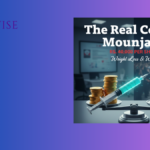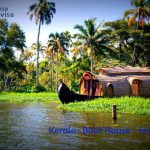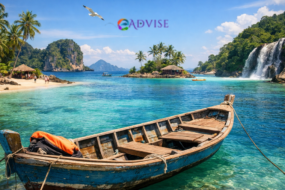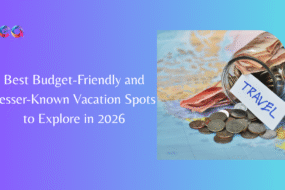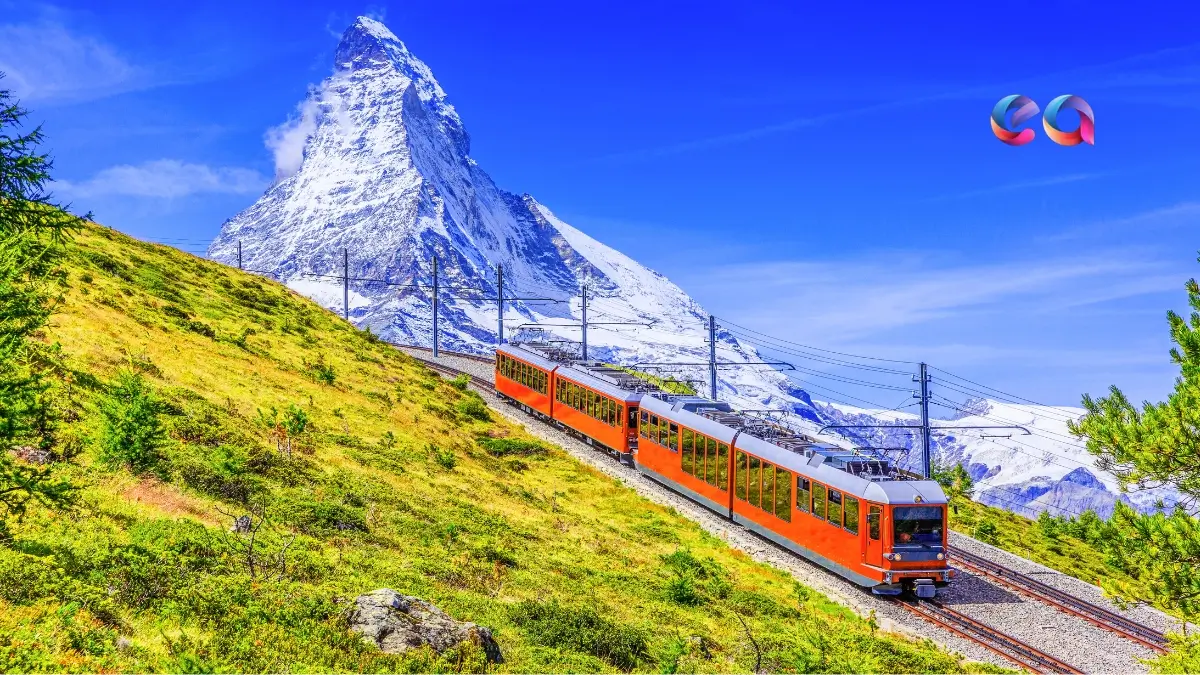
Switzerland is a small country in the heart of Europe, but it has a lot to offer to travelers who love nature, culture, history and adventure. Whether you want to explore the majestic Alps, enjoy the cosmopolitan cities, taste the delicious chocolate and cheese, or experience the rich traditions and diversity of this four-language nation, you will find something to suit your interests and preferences in Switzerland.
Here I will introduce you to some of the best places to visit in Switzerland, along with some practical tips and information to help you plan your trip. We will also answer some frequently asked questions about traveling to Switzerland at the end of the article.
Table of Contents
Why Visit Switzerland?
Switzerland is a country that has something for everyone. Here are some of the reasons why you should visit Switzerland:
- Scenery: Switzerland is blessed with stunning natural beauty, from the snow-capped peaks of the Alps to the crystal-clear lakes and rivers, from the green pastures and forests to the charming villages and towns. You can enjoy breathtaking views and panoramas wherever you go, and take advantage of the many outdoor activities and sports that Switzerland offers, such as hiking, skiing, biking, paragliding, rafting and more.
- Culture: Switzerland is a melting pot of cultures and languages, with four official languages (German, French, Italian and Romansh) and many regional dialects and customs. You can experience the different influences and flavors of each region, from the German-speaking Zurich and Bern to the French-speaking Geneva and Lausanne, from the Italian-speaking Lugano and Locarno to the Romansh-speaking Graubünden. You can also visit some of the world-class museums, galleries, theaters and festivals that showcase the rich cultural heritage and contemporary creativity of Switzerland.
- History: Switzerland has a long and fascinating history that dates back to ancient times. You can discover the traces of its past in its many castles, churches, monuments and museums that tell the stories of its people, politics, wars and achievements. You can also learn about the origins and evolution of its unique political system, its neutrality and its role in international affairs.
- Quality: Switzerland is known for its high standards of quality in everything it does. From its efficient public transportation system to its clean and safe environment, from its innovative industries and technologies to its exquisite craftsmanship and products, Switzerland strives to deliver excellence and satisfaction to its visitors and residents alike. You can enjoy the best of Swiss hospitality, cuisine, chocolate, cheese, watches, knives and more when you visit Switzerland.
[Also Read: Best Places To Visit In Spain]
How to Travel to Switzerland?
Switzerland is well-connected to the rest of Europe and the world by air, rail and road. Here are some of the ways you can travel to Switzerland:
- By air: Switzerland has several international airports that serve flights from many destinations around the world. The main airports are Zurich Airport (ZRH), Geneva Airport (GVA), Basel Airport (BSL) and Bern Airport (BRN). You can also fly to nearby airports in neighboring countries such as Milan Malpensa (MXP) in Italy or Frankfurt (FRA) in Germany and take a train or bus to Switzerland.
- By rail: Switzerland has an extensive and efficient railway network that connects it to many European cities and countries. You can take high-speed trains such as TGV, ICE or Eurostar from Paris, Berlin, London or Amsterdam to major Swiss cities such as Zurich, Geneva or Basel. You can also take scenic trains such as Glacier Express or Golden Pass that offer spectacular views of the Swiss countryside and mountains.
- By road: Switzerland has a modern and well-maintained road system that allows you to drive or take a bus from neighboring countries such as France, Germany, Italy or Austria. You will need a valid driver’s license and a vignette (a sticker that costs 40 CHF) to use the Swiss motorways. You may also need winter tires or chains if you drive in snowy or icy conditions.
Where to Stay in Switzerland?
Switzerland has a wide range of accommodation options for different budgets and preferences. You can choose from hotels, hostels, apartments, bed and breakfasts, guesthouses, chalets, campsites or even farm stays. Here are some of the factors you may want to consider when choosing where to stay in Switzerland:
- Location: Depending on your itinerary and interests, you may want to stay in a central location that allows you to easily access public transportation or attractions, or in a more secluded location that offers more peace and privacy. You may also want to stay near a lake or a mountain for better views or activities.
- Price: Switzerland is not a cheap destination by any means, but you can still find affordable accommodation if you book in advance or look for deals online. You can also save money by staying in hostels, sharing rooms or apartments, or camping. You can expect to pay around 50 CHF per night for a dorm bed, 100 CHF for a double room in a budget hotel, and 200 CHF or more for a luxury hotel.
- Facilities: Depending on your needs and expectations, you may want to look for accommodation that offers certain facilities such as free Wi-Fi, breakfast, parking, laundry, kitchen, swimming pool, spa or gym. You may also want to check the reviews and ratings of other guests to get an idea of the quality and service of the accommodation.
When is the Best Time to Visit Switzerland?
Switzerland is a year-round destination that offers different attractions and experiences depending on the season. Here are some of the pros and cons of visiting Switzerland in each season:
- Spring (March-May): Spring is a lovely time to visit Switzerland if you want to enjoy mild weather, blooming flowers and fewer crowds. However, some mountain passes and attractions may still be closed due to snow or maintenance.
- Summer (June-August): Summer is the peak season for tourism in Switzerland, as many people flock to the country to enjoy the warm weather, sunny days and outdoor activities. However, this also means higher prices, longer queues and limited availability for accommodation and transportation.
- Autumn (September-November): Autumn is another beautiful time to visit Switzerland if you want to see the changing colors of the foliage, taste the fresh produce and wine from the harvest season and celebrate various festivals and events. However, some mountain areas may start to get cold and rainy as winter approaches.
- Winter (December-February): Winter is a magical time to visit Switzerland if you want to experience the snowy wonderland, ski resorts and Christmas markets. However, this also means colder temperatures, shorter days and possible road closures or delays due to snow or ice.
| Best Cheap Flight Search Engine | Skyscanner |
| Best Rental Car Search Engine | Skyscanner & Kayak Rentals |
| Best Cheap Hotels | Cheap Hotels |
| Best Cheap Travel Insurance | Visitors Coverage & Safety Wing |
What to See and Do in Switzerland?
Switzerland has so many attractions and activities that it is impossible to list them all here. However, we have selected some of the best places to visit in Switzerland that will give you a taste of its diversity and beauty. Here they are:
Zurich:
Zurich is the largest city and the financial and cultural center of Switzerland. It is located on the banks of the Limmat River and Lake Zurich, and surrounded by hills and mountains. Zurich is a vibrant and cosmopolitan city that offers a mix of historical and modern attractions, as well as a lively nightlife and gastronomy scene.
Some of the things you can do in Zurich are:
- Visit the Old Town (Altstadt) and admire the medieval buildings, churches and squares, such as the Grossmünster, the Fraumünster, the St. Peter’s Church and the Lindenhof.
- Explore the museums and galleries that showcase the art, history and culture of Zurich and Switzerland, such as the Kunsthaus, the Swiss National Museum, the Rietberg Museum and the FIFA World Football Museum.
- Shop for souvenirs, fashion and chocolate in the famous Bahnhofstrasse, one of the most expensive shopping streets in the world, or in the trendy districts of Niederdorf, Langstrasse and Zurich West.
- Enjoy the views of the city and the lake from the Uetliberg, a hill that offers hiking trails, a lookout tower and a restaurant.
- Relax in one of the many parks and gardens that dot the city, such as the Botanical Garden, the Chinese Garden, the Rieterpark or the Zurichhorn.
- Experience the nightlife and entertainment options that cater to all tastes and budgets, from bars and clubs to theaters and cinemas.

Geneva:
Geneva is the second-largest city and the international hub of Switzerland. It is located on the shores of Lake Geneva, at the foot of the Alps and near the French border. Geneva is a global city that hosts many international organizations, such as the United Nations, the Red Cross and CERN. It is also a cultural and historical city that boasts many monuments, museums and festivals.
Some of the things you can do in Geneva are:
- See the Jet d’Eau, a fountain that shoots water up to 140 meters high in the air, and one of the symbols of Geneva.
- Visit the Palace of Nations, the European headquarters of the United Nations, and take a guided tour of its halls, chambers and gardens.
- Explore the Old Town (Vieille Ville) and discover its charming streets, squares and landmarks, such as the St. Pierre Cathedral, the Maison Tavel, the Place du Bourg-de-Four and the Reformation Wall.
- Learn about science and innovation at CERN, the European Organization for Nuclear Research, where you can see exhibits, experiments and even a replica of the Large Hadron Collider.
- Enjoy a boat cruise on Lake Geneva and admire its scenic shores, islands and castles, such as Chillon Castle or Montreux Castle.
- Experience some of Geneva’s festivals and events that celebrate its diversity and creativity, such as Fêtes de Genève (Geneva Festival), L’Escalade (The Escalade) or Salon International de l’Auto (Geneva Motor Show).
Lucerne:
Lucerne is a picturesque city in central Switzerland that lies on Lake Lucerne (Vierwaldstättersee) and is surrounded by mountains. It is one of Switzerland’s most popular tourist destinations because of its charming old town, its iconic wooden bridge (Kapellbrücke) and its proximity to many natural attractions.
Some of things you can do in Lucerne are:
- Walk across Kapellbrücke (Chapel Bridge), a covered wooden bridge that dates back to 1333 and features paintings depicting scenes from Lucerne’s history.
- Visit Museggmauer (Musegg Wall), a medieval fortification that encircles part of Lucerne’s old town and offers panoramic views from its nine towers.
- Explore Sammlung Rosengart (Rosengart Collection), a museum that houses works by Pablo Picasso, Paul Klee and other modern masters.
- Enjoy a concert at KKL Luzern (Culture & Convention Centre Lucerne), a stunning building designed by Jean Nouvel that hosts classical music performances by renowned orchestras and artists.
- Take a day trip to Mount Pilatus or Mount Rigi, two nearby peaks that offer spectacular views and activities for all seasons, such as hiking, biking, skiing or sledding.
- Experience some of Lucerne’s festivals and events that showcase its culture and traditions, such as Fasnacht (Carnival), Blue Balls Festival or Lucerne Festival.
Interlaken:
Interlaken is a small town in Bernese Oberland, a region in central Switzerland that is famous for its alpine scenery and outdoor activities. Interlaken is situated between two lakes, Lake Thun and Lake Brienz, and offers stunning views of the surrounding mountains, such as the Eiger, the Mönch and the Jungfrau. Interlaken is a popular base for exploring the nearby attractions, such as Jungfraujoch, Grindelwald, Lauterbrunnen and Schilthorn.
Some of the things you can do in Interlaken are:
- Go paragliding: Nothing beats a bird’s-eye view of the enchanting and formidable Swiss Alps, no matter the time of year. You can book a tandem flight with a professional instructor and soar over the lakes, valleys and peaks of Interlaken. You can also try other aerial sports, such as hang gliding, skydiving or helicopter tours.
- Dive from the sky: If you are looking for an adrenaline rush, you can try bungee jumping from a gondola over a glacier gorge near Interlaken. You can also jump from a plane or a helicopter over the Alps and experience free fall for up to 45 seconds before opening your parachute.
- Get your fix at the Funky Chocolate Club: If you love chocolate, you will love this place. The Funky Chocolate Club is a chocolate shop, cafe and workshop where you can taste, buy and make your own chocolate. You can learn about the history and production of chocolate, as well as create your own bars and truffles with different flavors and toppings.
- Explore the St Beatus Caves: The St Beatus Caves are a natural wonder that lies on the shores of Lake Thun. You can take a guided tour of the caves and see the impressive stalactites, stalagmites and waterfalls that have formed over millions of years. You can also visit the museum and the restaurant at the entrance of the caves.
- Visit the highest railway station in Europe, Jungfraujoch: Jungfraujoch is one of Switzerland’s most famous attractions and a UNESCO World Heritage Site. It is a mountain saddle that connects the peaks of Jungfrau and Mönch, and hosts the highest railway station in Europe at 3,454 meters above sea level. You can take a scenic train ride from Interlaken to Jungfraujoch and enjoy various attractions, such as the Ice Palace, the Sphinx Observatory, the Alpine Sensation and the Snow Fun Park.
- Visit the Oberhofen Castle: The Oberhofen Castle is a fairy-tale castle that dates back to the 13th century and overlooks Lake Thun. It is surrounded by a beautiful park and gardens that feature exotic plants and flowers. You can visit the castle museum and see its historical rooms and collections, such as the Turkish smoking room, the neo-Gothic library and the medieval knight’s hall.
- Go white water rafting on Lütschine River: The Lütschine River is one of Switzerland’s best rivers for white water rafting. It flows from Grindelwald to Lake Brienz and offers thrilling rapids and waves for all levels of rafters. You can join a guided rafting tour from Interlaken and experience an exciting adventure on the water.
- Enjoy the blossoms at the Schynige Platte Alpine Garden: The Schynige Platte Alpine Garden is a botanical garden that showcases over 600 species of alpine plants from Switzerland and other countries. It is located on a high plateau that offers panoramic views of Lake Thun, Lake Brienz and the Eiger, Mönch and Jungfrau mountains. You can reach the garden by taking a nostalgic cogwheel train from Wilderswil near Interlaken.
Conclusion:
Switzerland is a wonderful country to visit for its scenery, culture, adventure and luxury. It offers many places to see and things to do for all types of travelers. Whether you want to relax in a spa, hike in the mountains, shop in a city or taste some chocolate, Switzerland has it all.
We hope this article has given you some ideas and inspiration for your next trip to Switzerland. If you have any questions or comments, please feel free to leave them below.
FAQs:
Here are some frequently asked questions about traveling to Switzerland:
- What is the currency in Switzerland? The currency in Switzerland is the Swiss franc (CHF), which is divided into 100 centimes or rappen. You can exchange your money at banks, post offices or currency exchange offices, or use ATMs or credit cards to withdraw cash or make payments.
- What is the language in Switzerland? Switzerland has four official languages: German, French, Italian and Romansh. German is the most widely spoken language, followed by French, Italian and Romansh. However, many people also speak English, especially in tourist areas and cities.
- What is the time zone in Switzerland? Switzerland is in the Central European Time Zone (CET), which is one hour ahead of Greenwich Mean Time (GMT). Switzerland also observes daylight saving time (DST) from the last Sunday in March to the last Sunday in October, when the clocks are moved forward by one hour.
- What is the weather like in Switzerland? Switzerland has a temperate climate with four distinct seasons: spring, summer, autumn and winter. The weather can vary depending on the region, altitude and season, but generally, Switzerland has mild summers with average temperatures of 18°C to 28°C, and cold winters with average temperatures of -2°C to 7°C. Switzerland also receives a lot of precipitation throughout the year, mostly in the form of rain or snow.
- What are the visa requirements for Switzerland? Switzerland is part of the Schengen Area, which is a group of 26 European countries that have abolished border controls and allow free movement of people. If you are a citizen of one of these countries, you do not need a visa to enter Switzerland for up to 90 days. If you are a citizen of a non-Schengen country, you may need a visa depending on your nationality and purpose of visit. You can check the visa requirements for your country on the official website of the Swiss Federal Department of Foreign Affairs.



